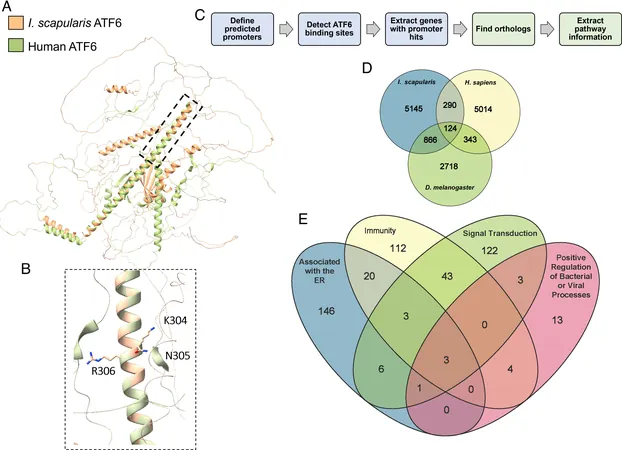
Could Driving a Taxi Protect You from Alzheimer's? Surprising New Study Unveils Hidden Benefits!
2024-12-29
Author: Sarah
Introduction
Taxi drivers endure exhausting hours behind the wheel, facing cramped seats and relentless traffic. While these conditions typically predispose them to health issues like back pain, hypertension, diabetes, and insomnia, new research uncovers an astonishing potential upside: a decreased risk of death from Alzheimer's disease.
The Study Background
In a groundbreaking study published in the BMJ, a team of researchers led by Vishal Patel, a resident physician at Brigham and Women's Hospital in Boston, explored the occupational backgrounds of deceased individuals to understand the correlation with Alzheimer’s-related mortality across 443 professions. This research sheds light on why taxi drivers, along with ambulance drivers, appear to be less affected by this debilitating condition.
Alzheimer's Disease and Its Impact
Alzheimer's disease, known for its devastating effects on memory and identity, has seen death rates double over the past 30 years, a trend expected to escalate as the population ages. The researchers hypothesized that jobs requiring real-time spatial navigation, such as taxi driving, may offer a protective effect against Alzheimer’s—an idea grounded in the nature of a brain area called the hippocampus, which is responsible for cognitive mapping and is additionally implicated in the disease.
Findings from the Research
Through the analysis of death certificates from the US National Vital Statistics System, covering nearly 8.9 million deceased individuals, the team found that only 1.03% of taxi drivers died from Alzheimer’s, which is significantly lower than the 3.11% associated with bus drivers and the 4.57% for pilots. This indicates a potential link between job navigation skills and a lowered risk of cognitive decline.
Unique Aspects of Alzheimer's
Interestingly, this protective trend was not mirrored in other types of dementia, highlighting the unique aspects of Alzheimer's. A 2022 neuroimaging study also reinforced these findings, showing that London taxi drivers exhibited enhanced functional changes in the hippocampus—an area that also shows accelerated deterioration in Alzheimer’s patients.
Cautions and Future Research
While these insights are promising, the researchers urge caution. They stress that this study cannot establish a direct cause-and-effect relationship. Instead, it sets the stage for further investigation into how specific occupational demands may influence cognitive health in older adults.
Implications and Conclusion
Future research could explore how lifestyle factors, training, and on-the-job skills might further contribute to cognitive resilience among taxi drivers and similar professions. The implications of this research could be transformative, not only for understanding Alzheimer's treatment but also promoting healthier lifestyles through job selection and training strategies.
Final Thoughts
Could choosing a driving profession be a stroke of genius for cognitive health? The connection is worth exploring.



 Brasil (PT)
Brasil (PT)
 Canada (EN)
Canada (EN)
 Chile (ES)
Chile (ES)
 Česko (CS)
Česko (CS)
 대한민국 (KO)
대한민국 (KO)
 España (ES)
España (ES)
 France (FR)
France (FR)
 Hong Kong (EN)
Hong Kong (EN)
 Italia (IT)
Italia (IT)
 日本 (JA)
日本 (JA)
 Magyarország (HU)
Magyarország (HU)
 Norge (NO)
Norge (NO)
 Polska (PL)
Polska (PL)
 Schweiz (DE)
Schweiz (DE)
 Singapore (EN)
Singapore (EN)
 Sverige (SV)
Sverige (SV)
 Suomi (FI)
Suomi (FI)
 Türkiye (TR)
Türkiye (TR)
 الإمارات العربية المتحدة (AR)
الإمارات العربية المتحدة (AR)